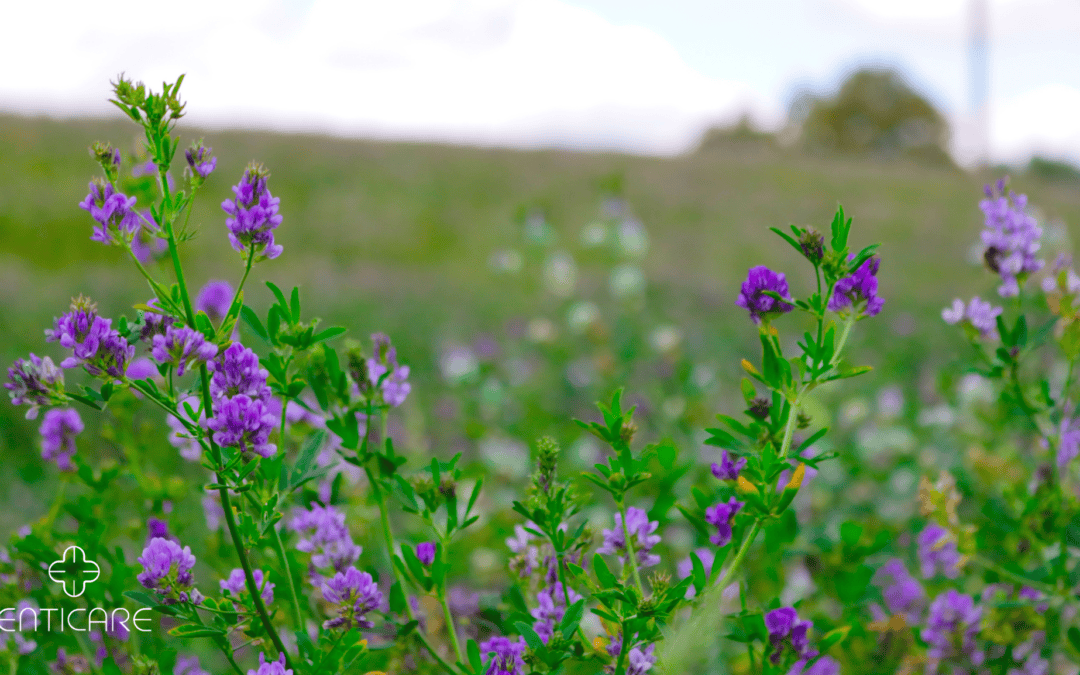Alfalfa, a common ingredient in many health foods and animal feeds, can cause severe allergic reactions in some individuals. Understanding the signs, causes, and relief options for alfalfa allergies is crucial for managing your health effectively.
Understanding Alfalfa Allergies
What are Alfalfa Sprouts?
Alfalfa, also known as Medicago sativa, is a perennial flowering plant in the legume family. Often used in health supplements, salads, and animal feeds, alfalfa is rich in vitamins, minerals, and proteins. Alfalfa sprouts, in particular, can cause allergic reactions in some individuals. However, for some people, it can trigger allergic reactions.
How Do Alfalfa Allergies Develop?
Alfalfa allergies occur when the immune system mistakenly identifies proteins in alfalfa as harmful. These proteins are known as ‘allergenic proteins’ and lead to the production of Immunoglobulin E (IgE) antibodies. This triggers the release of histamines and other chemicals, leading to various allergic symptoms. Repeated exposure can increase sensitivity, making the reactions more severe over time.
Who is at Risk?
Individuals with a history of allergies, particularly to other legumes or plants, have a higher risk of developing an alfalfa allergy. Additionally, those with occupational exposure to alfalfa seeds, such as farmers or animal handlers, face increased risks due to frequent contact with alfalfa.
Recognizing the Symptoms of Alfalfa Allergies
Common and Severe Allergic Reactions
People with alfalfa allergies often experience symptoms similar to those of other food or plant allergies. These can include itching, hives, swelling, and redness of the skin. These symptoms can appear within minutes to hours after exposure.
Respiratory Symptoms
Inhalation of the alfalfa hay, dust or pollen can cause respiratory symptoms such as sneezing, runny or stuffy nose, coughing, wheezing, and shortness of breath. Monitoring local pollen counts and planning outdoor activities when pollen counts are low can help reduce exposure to alfalfa pollen. These symptoms can be particularly severe in individuals with asthma or other respiratory conditions.
Gastrointestinal Symptoms
Ingesting alfalfa can lead to gastrointestinal symptoms like nausea, vomiting, diarrhea, and abdominal pain. These symptoms can occur even with small amounts of alfalfa, making it crucial to avoid all forms of exposure if you have an allergy.
Identifying the Causes of Alfalfa Allergies
Protein Sensitivity
Alfalfa contains several proteins that can trigger allergic reactions. The immune system of an allergic person overreacts to these proteins, causing the release of histamines and other chemicals. This immune response leads to the symptoms of an allergic reaction.
Cross-Reactivity
People allergic to other legumes, animals such as peanuts or soy, may also react to alfalfa due to cross-reactivity. The proteins in these plants can be similar enough to cause the immune system to react, even if the person has not been exposed to alfalfa before.
Environmental Exposure to Alfalfa Pollen
Frequent exposure to alfalfa through occupation or diet can increase the risk of developing an allergy. Farmers, gardeners, and animal handlers are particularly susceptible due to their regular contact with alfalfa plants, hay and products.
Effective Solutions to Manage Alfalfa Allergies
Avoidance Strategies
The most effective way to manage alfalfa allergies is to avoid exposure. Read food labels carefully to ensure they do not contain alfalfa pollen or its derivatives. For occupational exposure, wearing protective clothing and masks can help minimize contact with alfalfa dust and pollen.
Medical Treatments
Over-the-counter antihistamines can help manage mild allergic reactions. For more severe symptoms, your doctor may prescribe corticosteroids or epinephrine auto-injectors. These medications can quickly reduce symptoms and prevent complications.
Immunotherapy
In some cases, allergists may recommend immunotherapy, such as allergy shots, to desensitize the immune system to alfalfa proteins. This treatment involves regular injections of small amounts of the allergen, gradually increasing the dose over time to have patients build tolerance.
Seeking Professional Help
Allergy Testing and Diagnosis
If you suspect an alfalfa allergy, seeking professional help is essential. An allergist can perform skin or blood tests to diagnose the allergy accurately. These tests help determine your sensitivity to alfalfa and guide your treatment plan.
Long-Term Management
Effective long-term management of alfalfa allergies involves ongoing care disease control and prevention. Regular follow-ups with an allergist, maintaining a strict avoidance strategy, and using preventive measures can help keep allergic reactions at bay.
Personalized Treatment Plans
An allergist can develop a personalized treatment plan based on your specific symptoms and severity. This plan may include lifestyle modifications dietary supplements, medication, and emergency action plans to ensure you are prepared for any allergic reactions.
Conclusion: Take Action Against Alfalfa Allergies
Alfalfa allergies can significantly impact your quality of life, but understanding the signs, causes, and solutions to grass allergies can help you manage and prevent severe reactions. Don’t let alfalfa allergies control your health and well-being.
Take the first step towards managing alfalfa allergies by scheduling an appointment with our experts. Visit Enticare to book your consultation today and start living allergy-free!
By following these steps, you can effectively manage alfalfa allergies and improve your overall health and comfort.

